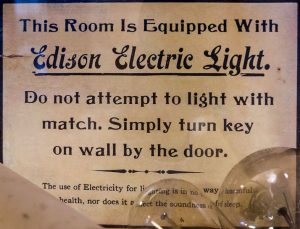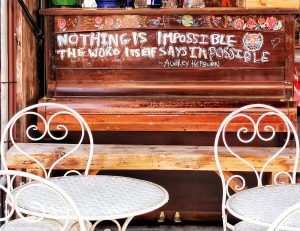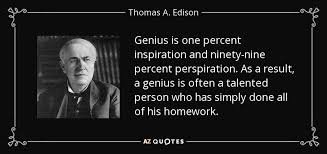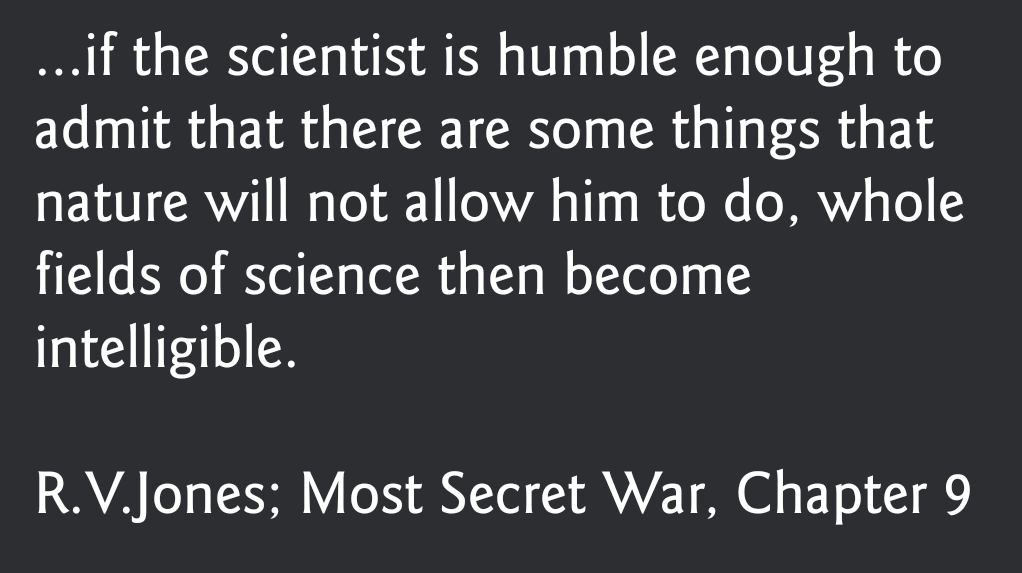As the legend goes, a young journalist had the temerity to ask Thomas Edison how it felt to fail ten thousand times.
“Waddya mean, son,” the Great Man politely responded.

“Your lightbulb, sir.” It was well known that Edison had experimented with thousands of different substances—from charcoaled cotton to manganese wire—trying to find a filament that would burn bright enough and long enough to be commercially useful.
The journalist was right. There had been thousands of failures along the way to the discovery of the carbonised bamboo filament that could provide decent illumination for up to 1200 hours.
Edison abruptly corrected the young man. “I have not failed ten thousand times”, he growled. “I have discovered ten thousand ways that won’t work.”
At first glance, Edison appears to be denying the very idea of failure. Fodder here for the sunny optimists who like to tell us, as Audrey Hepburn famously did:
“Nothing is impossible. The word itself says ‘I’m possible'”.
But that wasn’t at all what Edison had in mind. The fact of failure, the acknowledgement that certain things quite certainly are impossible—and he was going to find out exactly what they were—was at the very heart of his experimental approach.

A piano outside a cafe on Golders Green High Street promulgates this message. Good poetry is true. But this isn’t good poetry.
Edison was no scientist. But he was a dogged pragmatist who understood that the world and your dreams about the way the world should work are two utterly different things. In this important sense, you do not invent the lightbulb. You discover it.
We currently have a textbook example on the world stage of someone who exemplifies the Audrey Hepburn school of magical thought. This man’s father, Fred, was a close friend of Pastor Norman Vincent Peale, whose best-selling book “The Power of Positive Thinking” was a smash hit in the early 1950s.
The son, Donald, was brought up in a family environment that parodied Peal’s faith-inspired and cheerfully helpful notions. “The world,” as the young philosopher, Ludwig Wittgenstein, wrote thirty years before Peale, “is everything that is the case.” But for President Donald Trump the world is everything he says it is, a solipsism built on myopia sustained with hope, self-deception and lies.

Yes, we do need dreams to drive us forward. But we also need to understand that the world is not ninety-nine percent aspiration.
And that failure is a reality that exists to tell us what is not the case.

—
Chris Bidmead: 1 May 2019
